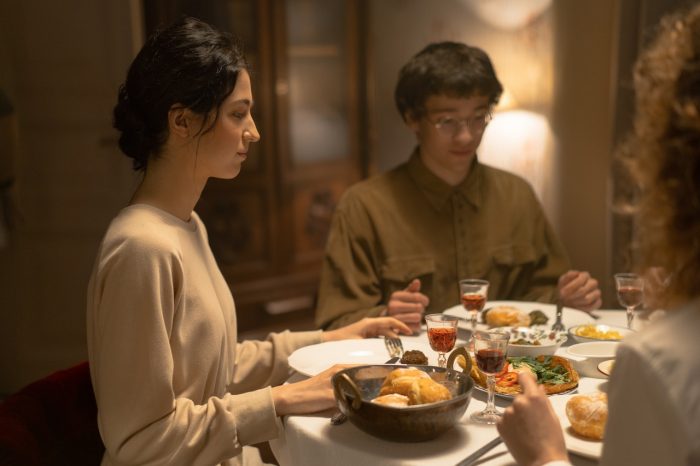I have been blessed with the strength of will to battle my demons, but that doesn’t necessarily make it easy for me.
I’ve struggled with many things over the course of my 42 years on this planet, with recovering from my alcohol addiction being one of my most recent and most celebrated victories.
Recovery may seem like a straightforward process to someone on the outside looking in. Surely, it’s just as simple as putting down the bottle, right? Not exactly.
Yes, of course, simply stopping drinking is the crux of the situation, but I don’t think many people realize the landslide of events and emotions that come up when you stop, and how it may take years to feel normal again.
I used alcohol as a comfort. I loved coming home from a long day at work and pouring a big glass of red wine. Alcohol became my friend and my confidant. I depended on it to help me deal with the stress of the day and certainly made sure it was always there for me when I needed it.
Christmas drinks were always somehow even more amazing. I wasn’t someone who usually opted for sweet drinks or cocktails, so Christmas seemed to be the excuse I needed to try these new and boozy creations. It is not only socially acceptable, but expected that everywhere you go, you have a drink. Friend’s house? Have a drink. Shopping? Have a drink. Out for dinner? Well, yes, please, don’t mind if I do!
It is so ingrained into so many societies, I didn’t even think twice about reaching for that glass of champagne immediately offered upon arriving at any kind of celebration.
Slowly, I began to understand that, somewhere along the line, my drinking had slipped from the odd occasion to every weekend. And then every night. And then a lot every night. I wasn’t drinking to be drunk—my tolerance was too high by this point. I was wasting all kinds of money on alcohol. I was continually feeling a low-level hangover that was affecting my work.
It was doing me no favors, and it was time to let it go. Even though I knew this on an intellectual level, it took me years to finally get to a point when I was ready to be done with it. When alcohol is everywhere around you, it is a hard decision to choose to walk away.
When I quit drinking, the first thing that happened once I got over the immediate physical withdrawal symptoms was a sort of depression. A longing that was in the depth of my being. Like an old friend had passed away, and all I wanted to do was see that friend one more time.
Something I had known for so many of my years just wasn’t there anymore, and I missed it. It left an empty space that I had to learn how to fill, doing something other than reaching for another bottle.
And then, just when I thought I could handle it, the ads started hitting me over the head. They were everywhere. On the television. All over Facebook. In magazines. In newspapers. Beautiful displays of pretty bottles on every store shelf. When you stop and look at this critically, it really is quite shocking how many ads there are for alcohol. How did this all become so accepted as mainstream?
So I was dealing with the withdrawals; I was dealing with the depression of missing my good friend, wine; I was dealing with the stress of seeing it absolutely everywhere. And I wasn’t able to take any of that pressure off by pouring a nice glass of red. I need you to understand how uncomfortable it is to not be able to mask all of these feelings by having a drink, or two, or six.
When you are stuck out there, feeling vulnerable and exposed, and you have all of these things going on inside of you, and you have to deal with these emotions with no barrier, life gets raw and real, really fast. You feel like you are being battered from every direction, and instead of being able to numb out and hide from your feelings, all of a sudden, you have no choice to face them head-on. It’s not easy.
It’s been a few days, and I’m getting used to living without a drink. Now I’ve been invited to a friend’s house for dinner. They offer me a drink, as is the social custom. Maybe they know I’ve quit, maybe they don’t. Maybe they let it drop, maybe they don’t. Maybe they look at me like there’s something wrong with me. Maybe they whisper behind my back.
I will inevitably run into someone eventually who will pressure me to have just one. Oh, come on. Don’t be such a stick in the mud. It’s only one drink. It’s Christmas. Loosen up. It’s only one. It’s only wine. It’s only…
Of course, I know in the depth of my being that it won’t be only one. An alcohol addict can—and largely will—slip right back into that super comfortable, deep end with what you figure will be just one drink. And you, dear friend, may never know as to a person who has a problem with alcohol this is a huge source of shame and embarrassment.
We don’t want to be drunk. We don’t want to fail at recovery. We don’t want you to feel bad for pushing us back over the edge, even though maybe you should feel bad. Really, you should feel horrible.
If you are not struggling with addiction, I want you to understand that it’s not just the booze itself that is the challenge. It’s all of the mental and emotional trauma that stopping will inevitably drudge up. It’s feeling the pressure from around every single corner. It’s facing life sober, in a time when alcohol is so normalized, it’s rarely given a second thought by those who don’t struggle with it.
And to those who are able to drink in moderation, if someone says, “No, thanks” to an offered drink, have enough respect for that person to just leave it at that. No pressure, no side-eye, no whispered gossip.
I’m not sure why “no, thanks” stopped being an acceptable response to anything, especially around the holidays. People have pressure on them that you cannot imagine. “No, thanks” is valid. Always. Especially for people with any kind of addiction.
If you are struggling with addiction, please know you are not alone, and we know how you feel. Of course, there are the good old tried and true support groups such as AA and Smart Recovery that are easily found in neighborhoods and online. You can sign up to watch Russell Brand talk about his recovery with his smart-ass, tongue-in-cheek approach. You can follow any number of celebrities who are on the same path.
There are so many really great Facebook groups. There are so many books. Good books. Smart books. And so many people you meet on the street who maybe you would never even know. We’re out there. Some of us quit. Some of us really quit, obnoxiously loud. Find us. We’ll help you.
I want to thank Annie Grace’s “This Naked Mind” that helped me immensely with my first days and weeks.
I want to thank the Facebook Group “Sober Ninjas” for being my best friends, even though I’ve not met a single one of them.
I want to thank Russell Brand for being the most spiritual and thoughtful recovering as*hole I’ve had the pleasure of trying to understand.
And most certainly not least, I want to thank every person out there who has never pressured me into doing anything I wasn’t comfortable doing no matter what it was.
Thank you for accepting “no” for an answer. Thank you for respecting my choices. Thank you for letting me just be me.
My last drink was on November 5, 2019. I got here one day at a time.
~


 Share on bsky
Share on bsky





Read 6 comments and reply